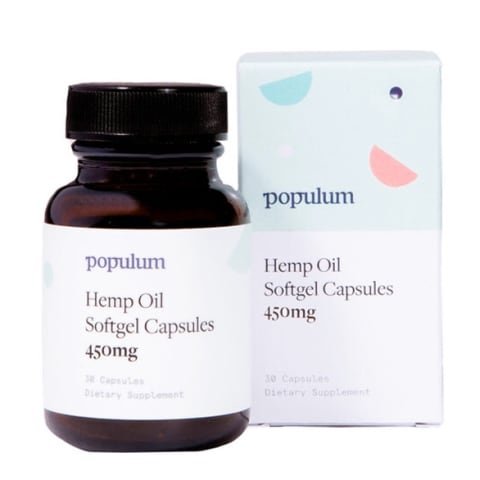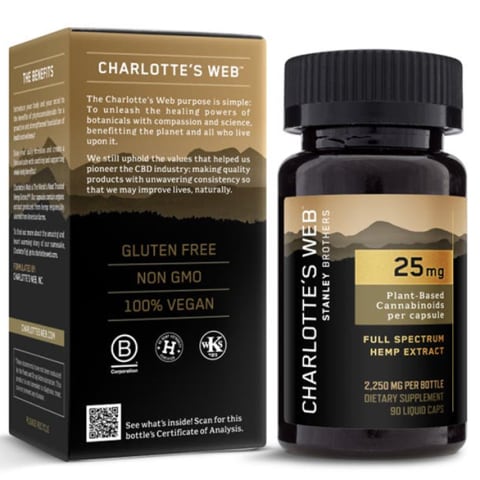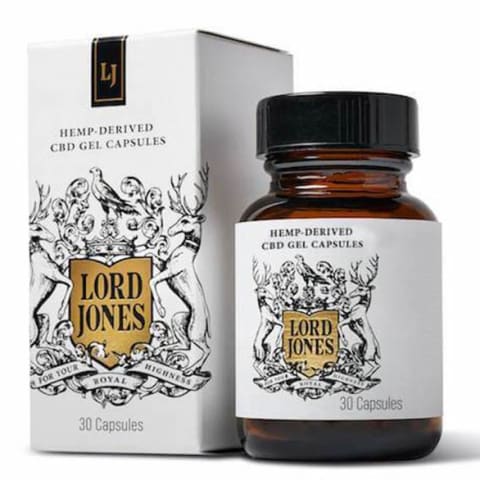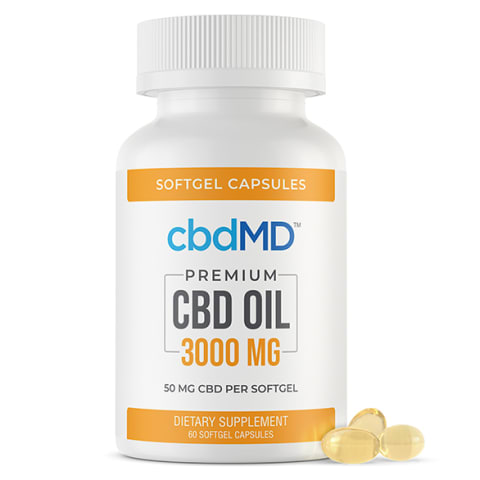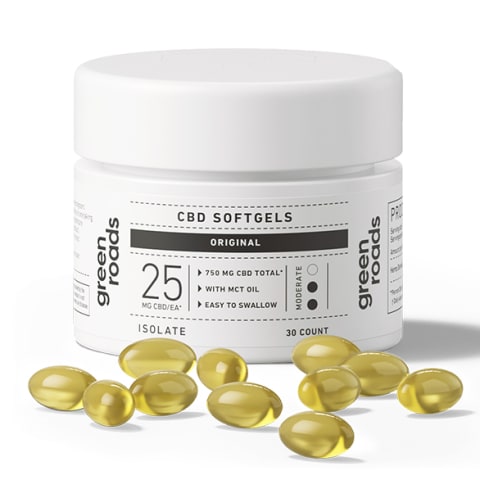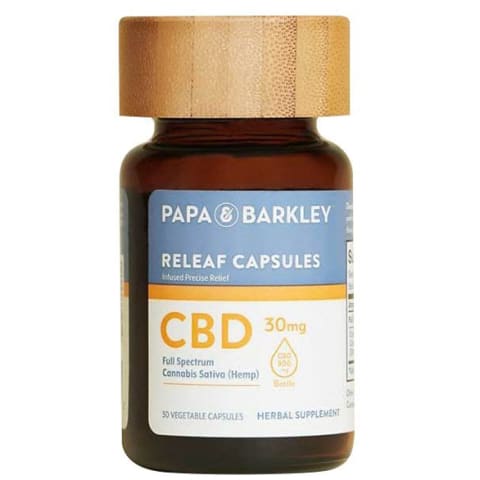Different sections of the versatile plant can be used to make everything from clothes to cooking oils. In its aerial parts—that’s the leaves, flowers, and stems—you’ll find hemp’s CBD, along with an array of other healthy plant compounds called phytocannabinoids (of which CBD is one of many, but a star player), terpenes, and flavonoids. Once distilled from the plant, the hemp CBD can be turned into its own supplement known as an isolate product. Or, it can be combined with those other phytocannabinoids and beneficial plant compounds. When a hemp supplement product contains this full array of phytocannabinoids, it’s considered full-spectrum. By U.S. law, all hemp plants must be bred to contain less than 0.3% tetrahydrocannabinol (THC). That’s considered trace amounts (i.e., negligible) of this phytocannabinoid. In the European Union, they are more strict, at less than 0.2% THC1 by dry weight. This means that, unlike other cannabis plant cultivars that are much higher in THC, truly agricultural hemp products should not lead to psychoactive effects. Instead, they can be taken to promote a more subtle, levelheaded sense of calm.* And broad-spectrum hemp extract varieties are like full-spectrum, minus the THC altogether (so, you technically lose the full entourage of plant compounds). In full-spectrum, broad-spectrum, and isolate hemp products, CBD is the protagonist of the hemp storyline, as it’s the phytocannabinoid found in concentrated amounts. Hemp-derived CBD supplements usually come in oil tinctures or capsules (i.e., gelcaps/softgels). While both delivery formats are useful, capsules allow for more precise dosing, greater convenience (take anywhere, no liquid dropper required), and don’t have the grassy flavor and mouthfeel of hemp oil tinctures that some find off-putting. They can also include other botanical ingredients that can further their relaxing benefits.* The ECS is an important regulatory system that runs throughout our entire bodies to keep various organs and cellular processes in balance. Compared to other body systems (think cardiovascular, musculoskeletal, immune, etc.), the ECS is the semi-new kid on the block. Research only picked up on it within the last few decades. Even so, some promising research has come in to show how hemp’s botanical compounds work to nurture this essential system2.* In a 2020 clinical study published in the Journal of Dietary Supplements3, 65 overweight but otherwise healthy men and women consumed a supplement of 15 milligrams of hemp-derived CBD for six weeks. By the end of the randomized, placebo-controlled, double-blind trial, hemp supplementation was found to promote stress resilience and improve perceived life pleasure.* And in a 2019 trial in 72 adults4, hemp-derived CBD in capsule form was found to reduce stress and promote sleep at doses around 25 mg—and it came with few side effects or safety concerns.* In fact, one of the “side effects” of hemp oil (although typically at higher doses), in capsule or tincture, is sleepiness (some would call that a benefit).* Given its ability to help ease stress, it would make sense that hemp products come with some other perks of a calm state of mind, like a brighter mood, less reactivity, and higher productivity.* Capsule count: 30/bottle Price: $79 Populum’s full-spectrum hemp is organically grown in Colorado. You’ll find 15 mg of hemp-derived CBD per serving of their lower-concentrate gelcaps—a good dose for a gentle wave of relaxation. With a short “other ingredients” list, these capsules are also vegan and non-GMO. Populum offers a 30-day trial period with their products, and if you love them, a discounted subscription model is also available.* Capsule count: 30/bottle Price: $74.99 Another vegan option, Charlotte’s Web’s vegetable capsules contain just three ingredients: full-spectrum hemp extract, organic extra-virgin olive oil, and the vegetable liquid cap itself. Their hemp extract comes from hemp grown in the USA. Charlotte’s Web is a veteran company in the hemp space and a trusted, transparent name in the phytocannabinoid market. Capsule count: 30/bottle Price: $95 While full-spectrum hemp may contain trace amounts of THC (again, at levels below 0.3%), broad-spectrum products aim to remove the compound altogether. For anyone who needs zero THC, these capsules from Lord Jones pack all the beneficial phytocannabinoids, terpenes, and flavonoids of a well-rounded hemp product—including 25 mg of CBD per serving—without detectable levels of THC.* Capsule count: 60/bottle Price: $129.99 Third-party tested to be THC-free, cbdMD’s broad-spectrum option packs a higher dose of hemp-derived CBD—50 mg per softgel—making them the strongest (and most expensive) on the list. During moments of high stress or tension, they’re a great option to have on hand. They also contain vitamin E (tocopherols) as an “other ingredient,” because this antioxidant supports the freshness of the ingredients.* Capsule count: 30/bottle Price: $49.99 Full-spectrum is largely considered the gold standard in the hemp space but if you are going to go with an isolate product that only contains hemp-derived CBD, make it this one from Green Roads. The female-owned company specializes in CBD products from hemp grown in the U.S. that are formulated by pharmacists and third-party tested for purity and potency. Capsule count: 10/bottle Price: $19.99 This 10-pack of full-spectrum hemp capsules makes it easy for people who are new to the product to try it out without shelling out for a larger size. Coming in at 30 mg of hemp-derived CBD per serving, each gelcap will give beginners a good indication of what to expect with a phytocannabinoid hemp supplement product. If you’re new to the phytocannabinoid world, be sure to read our expert-approved recommendations for finding your ideal dose, fitting the product into your lifestyle, and gauging how it’s working for you before trying your first capsule. Happy hemping! Emma received her B.A. in Environmental Science & Policy with a specialty in environmental communications from Duke University. In addition to penning over 1,000 mbg articles on topics from the water crisis in California to the rise of urban beekeeping, her work has appeared on Grist, Bloomberg News, Bustle, and Forbes. She’s spoken about the intersection of self-care and sustainability on podcasts and live events alongside environmental thought leaders like Marci Zaroff, Gay Browne, and Summer Rayne Oakes.



